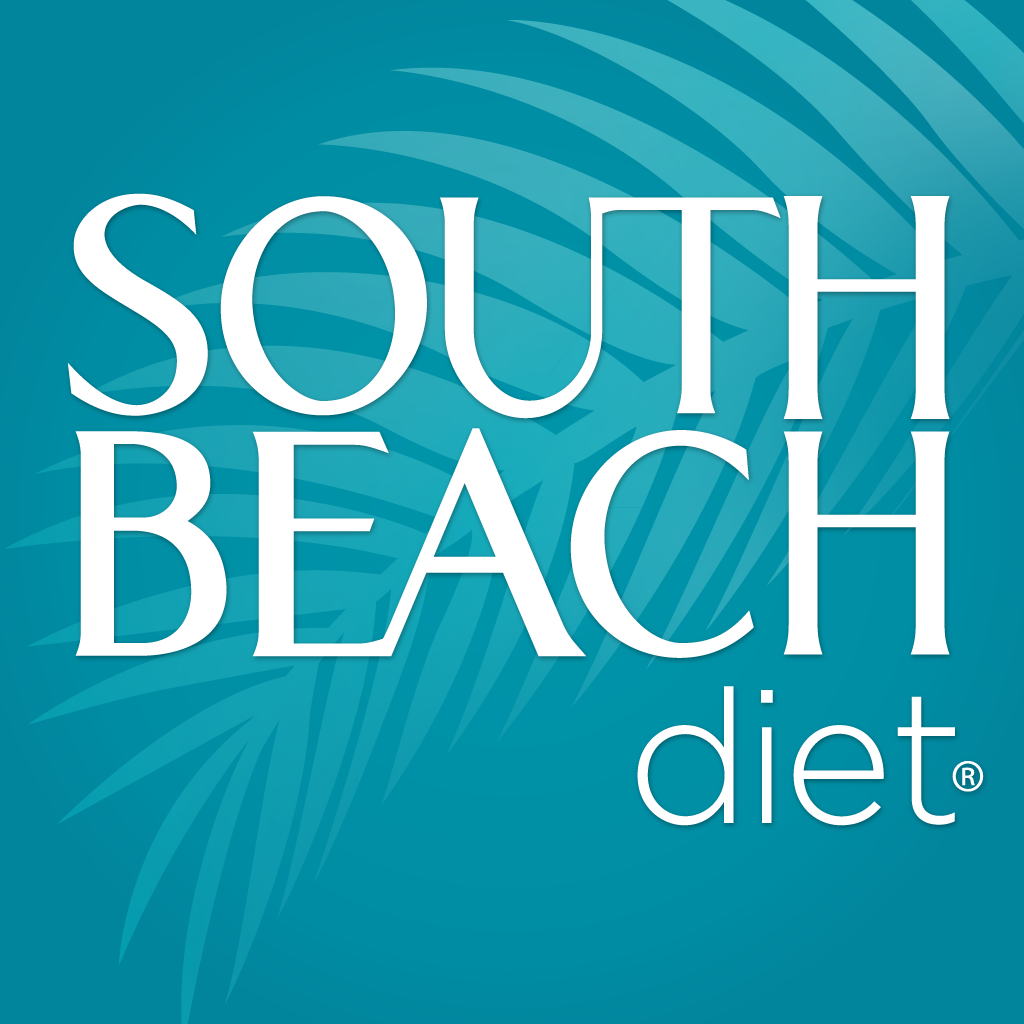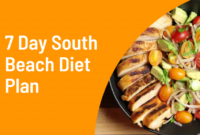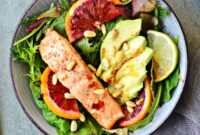Beach Diet 1 Week: Dreaming of a toned physique for your upcoming beach vacation? This guide offers a balanced approach to healthy eating and exercise, focusing on sustainable strategies rather than crash diets. We’ll explore the pitfalls of quick-fix weight loss plans, providing a realistic and achievable one-week plan that emphasizes nutritious whole foods, manageable workouts, and a positive mindset. Prepare to feel confident and energized, ready to enjoy your beach getaway to the fullest.
We’ll delve into creating a sample seven-day meal plan packed with lean proteins, vibrant fruits, and vegetables. Discover delicious recipes perfect for both your daily life and beachside enjoyment. We’ll also incorporate a beginner-friendly workout routine that you can adapt to your fitness level, including beach-friendly activities. Finally, we’ll address the crucial role of mindset and behavior modification in achieving lasting results and maintaining a healthy lifestyle long after your vacation ends.
Exercise and Activity Recommendations
Maintaining a healthy lifestyle involves a balanced approach to diet and exercise. This section outlines a sample workout routine suitable for beginners, incorporating both cardio and strength training, and explores the benefits of adding beach-specific activities to your fitness regimen. We will also discuss how to adapt exercises to different fitness levels and physical limitations.
Beginner Workout Routine
This routine is designed for individuals with little to no prior exercise experience. It focuses on building a foundation of strength and cardiovascular fitness. Remember to consult your doctor before starting any new workout program. The routine should be performed 3-4 times per week, allowing for rest days between workouts.
| Day | Activity | Sets | Reps | Rest |
|---|---|---|---|---|
| Monday | Cardio (e.g., brisk walking, jogging) | 1 | 30 minutes | None |
| Tuesday | Strength Training (Bodyweight exercises) | 3 | 10-12 | 60 seconds |
| Wednesday | Rest | |||
| Thursday | Cardio (e.g., cycling, swimming) | 1 | 30 minutes | None |
| Friday | Strength Training (Bodyweight exercises) | 3 | 10-12 | 60 seconds |
| Saturday | Rest or Active Recovery (yoga, stretching) | |||
| Sunday | Rest |
Example Bodyweight Exercises: Squats, push-ups (against a wall or on knees if needed), lunges, planks, glute bridges.
Benefits of Beach-Specific Activities
Incorporating beach-specific activities offers numerous advantages. Swimming provides a full-body workout, improving cardiovascular health and muscle strength with minimal impact on joints. Surfing enhances balance, coordination, and core strength. Beach volleyball improves cardiovascular fitness, agility, and teamwork skills. These activities also offer the added benefit of enjoyment and stress reduction associated with being outdoors in a natural setting.
Modifying Exercises for Different Fitness Levels
Modifying exercises is crucial for safety and effectiveness. Beginners might start with easier variations, such as wall push-ups instead of floor push-ups, or shorter planks. Individuals with physical limitations should choose modifications that accommodate their specific needs. For example, someone with knee problems could substitute squats with seated leg presses. Always listen to your body and stop if you experience pain.
Visual Representation of a Sample Workout Routine
Imagine a calendar grid representing a week. Each day is a cell. Monday and Thursday show an icon representing cardio exercise (a running person silhouette). Tuesday and Friday show an icon depicting strength training (a person doing squats). Wednesday, Saturday, and Sunday are marked with a rest symbol (a sleeping moon). Below the calendar, there’s a key explaining each icon. The intensity levels of the exercises could be visually represented by different shades of color for each day, with darker shades indicating more intense workouts. The bodyweight exercises for Tuesday and Friday could be listed below their respective icons, with a simple illustration (stick figures) showing the correct form for each exercise.
Realistic Expectations and Long-Term Health
A successful beach diet isn’t just about shedding pounds for a week; it’s about cultivating healthier habits that support your well-being long after your vacation ends. This section clarifies the distinction between temporary weight loss and lasting lifestyle changes, emphasizing the importance of professional guidance and providing actionable strategies for maintaining healthy eating beyond your trip.
The key difference between short-term weight loss and sustainable lifestyle changes lies in the approach. Short-term weight loss often involves restrictive diets or extreme measures that are difficult to maintain long-term. These methods may lead to quick results, but they often come with a rebound effect, where weight is regained quickly once the diet is stopped. Sustainable lifestyle changes, on the other hand, focus on gradual, incremental improvements to diet and exercise habits that are easily integrated into your daily routine. This approach promotes gradual, healthy weight loss and maintenance, resulting in lasting benefits for your overall health.
The Importance of Professional Consultation
Before embarking on any new diet plan, particularly one as potentially restrictive as a short-term beach diet, it’s crucial to consult a healthcare professional or a registered dietitian. They can assess your individual health needs, consider any underlying medical conditions, and help you create a safe and effective plan tailored to your specific circumstances. Ignoring this step could lead to nutritional deficiencies, adverse health effects, or even hinder your overall health goals. A professional can also help you set realistic expectations and provide guidance on maintaining a healthy weight long-term. They can also help you identify potential risks associated with your chosen approach and offer personalized advice on how to mitigate them.
Maintaining Healthy Eating Habits After Vacation
Transitioning from a short-term diet to a sustainable lifestyle requires careful planning. The following examples illustrate healthy eating habits that can be maintained long after your beach vacation:
- Prioritize whole, unprocessed foods: Focus on fruits, vegetables, lean proteins, and whole grains. These provide essential nutrients and fiber, keeping you feeling full and satisfied.
- Control portion sizes: Be mindful of how much you’re eating. Using smaller plates and paying attention to your body’s hunger cues can help prevent overeating.
- Hydrate consistently: Drink plenty of water throughout the day. Water helps you feel full, aids digestion, and supports overall health.
- Limit processed foods, sugary drinks, and unhealthy fats: These contribute to weight gain and various health problems. Reducing your intake of these items is crucial for long-term well-being.
- Plan your meals and snacks: Preparation is key. Planning your meals and snacks in advance helps you make healthier choices and avoid impulsive eating.
Healthy Lifestyle vs. Quick-Fix Diets
A healthy lifestyle encompasses a holistic approach to well-being, encompassing balanced nutrition, regular physical activity, and stress management. It promotes sustainable weight management, improved energy levels, reduced risk of chronic diseases (such as heart disease, type 2 diabetes, and certain cancers), and enhanced mental well-being. In contrast, quick-fix diets often involve drastic calorie restriction or elimination of entire food groups, leading to nutrient deficiencies, muscle loss, and a high risk of regaining the lost weight once the diet ends. Furthermore, the restrictive nature of these diets can be detrimental to mental health, leading to feelings of deprivation and ultimately hindering long-term success. A healthy lifestyle, on the other hand, is empowering and sustainable, fostering a positive relationship with food and promoting long-term health and happiness. The benefits extend far beyond weight loss, encompassing overall physical and mental well-being.
Conclusion
Ultimately, a successful “beach diet” isn’t about drastic measures; it’s about making informed choices that support your overall well-being. This one-week plan provides a framework for nourishing your body and boosting your confidence. Remember that sustainable lifestyle changes are key to long-term health. By focusing on nutritious foods, regular exercise, and a positive mindset, you’ll not only achieve your beach-ready goals but also cultivate healthier habits that extend far beyond your vacation.




